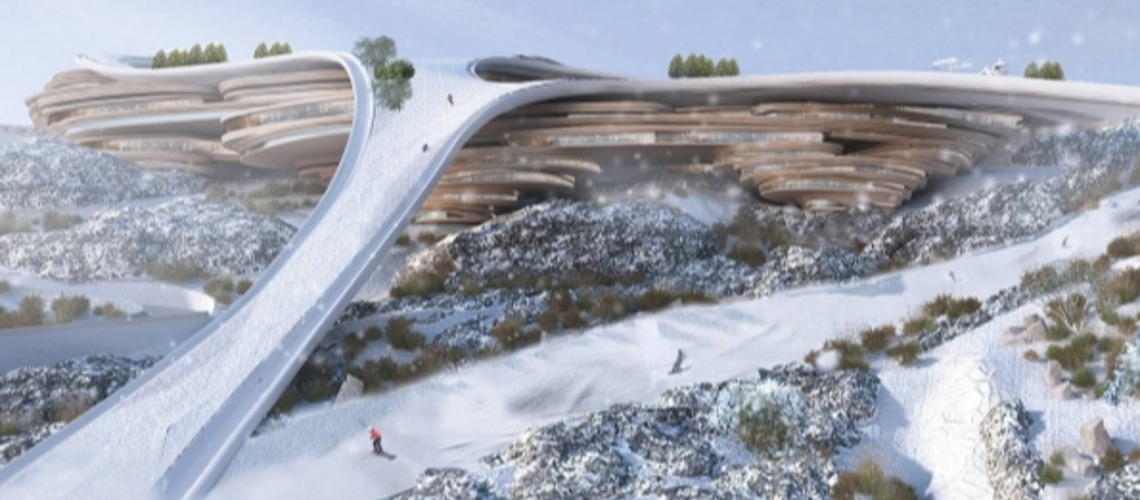Trojena Delays Cast Doubt On Saudi Arabia’s 2029 Asian Winter Games Plans

Saudi Arabia’s ambitious plan to host the 2029 Asian Winter Games in the futuristic mountain resort of Trojena is facing significant challenges, with recent reports indicating that construction delays have led to internal discussions about a potential fallback plan. The news has raised questions about the viability of the kingdom's "Vision 2030" gigaprojects and their ability to be delivered on schedule.
Trojena, a futuristic ski resort nestled 2,600 meters above sea level in the Kingdom’s $500 billion NEOM megacity, was meant to be a showcase of innovation: 30 kilometers of ski runs, artificial snow sourced from the Gulf of Aqaba 200km away, and a man-made lake surrounded by luxury residences and hotels. But according to multiple reports, the project is now significantly behind schedule.
Sources close to the development cite engineering difficulties, rising costs, and the harsh terrain as key obstacles. The Vault, a vertical village carved into the mountainside, requires thousands of tension cables and extensive rock blasting—yet progress has been slow, with some estimates suggesting it could take up to eight years to complete. Meanwhile, the resort’s desalination plant, crucial for generating artificial snow and filling the lake, remains unfinished. Water is currently being trucked in via tankers.
The Trojena project, a centerpiece of the $1.5 trillion Neom megacity, was initially slated for completion in 2026. However, sources familiar with the project have cited mounting engineering hurdles and logistical issues, particularly with the construction of the resort's signature "Vault" structure and the massive artificial lake intended to supply water for snowmaking. One report from the Financial Times suggests that progress on key infrastructure, such as the installation of tension cables for the Vault, is moving at a pace that could extend the timeline by years, pushing completion well beyond the 2029 deadline.
The Olympic Council of Asia (OCA), the governing body of the games, has reportedly been in contact with other potential hosts, including South Korea, to explore contingency plans. This development comes as a significant blow to the kingdom's efforts to showcase its capacity for large-scale global events and to diversify its economy away from oil. While Saudi officials have not publicly acknowledged the setbacks, sources indicate preliminary conversations have taken place in Riyadh about relocating the games to a country with existing infrastructure, with Saudi Arabia potentially hosting at a later date, perhaps in 2033.
The challenges at Trojena are part of a broader pattern of delays across the Neom portfolio. Other high-profile projects, such as "The Line" and the luxury island of Sindalah, have also experienced setbacks, prompting a re-evaluation of project scopes and budgets. The kingdom's Public Investment Fund (PIF) has reportedly seen a dip in investments in gigaprojects, reflecting a more cautious approach in response to market conditions.
For now, the fate of the 2029 Asian Winter Games hangs in the balance. While Neom officials maintain that development is progressing according to a phased plan, the reality on the ground—and the quiet search for alternative hosts—suggests the race to the finish line has become steeper than initially anticipated. The outcome will not only determine the venue for the games but also serve as a crucial test of Saudi Arabia's ability to turn its ambitious visions into reality.
Beyond construction woes, the NEOM initiative has faced criticism over human rights concerns, particularly regarding the displacement of the indigenous Huwaitat tribe and labor conditions for migrant workers.
Saudi Arabia’s Vision 2030 aims to transform the Kingdom into a global hub for tourism, sports, and innovation. Hosting the Asian Winter Games was intended to be a symbolic milestone. But with deadlines looming and infrastructure lagging, the dream of desert skiing may be slipping through the cracks.
Whether Trojena can rally in time or the Games find a new home remains to be seen. For now, the spotlight is on Riyadh—and the clock is ticking.














